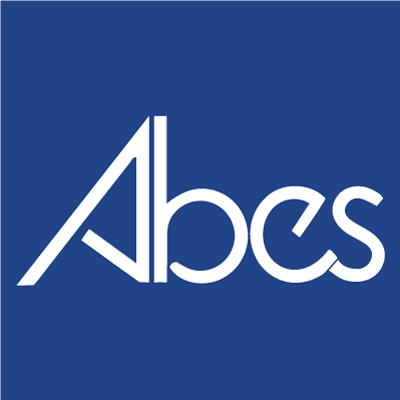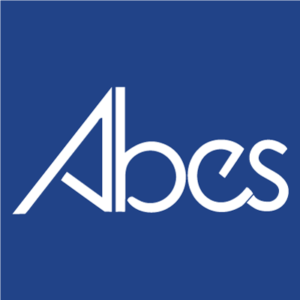Community Support Worker: All Your Questions Answered
A career as a support worker gives you the opportunity to work with individuals from all walks of life. In each case, you’ll be the one to offer them support, a chance to air their problems and feel understood, and the joy of seeing their lives genuinely improve.
On your way there, you’ll want to make sure you gather the skills that prepare you for the fulfilling field of support work, and equip you with the knowledge needed to make an impact in your clients’ lives.
This blog post offers a comprehensive look at what being a CSW entails and why ABES college is where you’ll want to start your journey.
5 Community Support Worker Roles and Pathways
The exact you do as CSW depends on the clients you’ll be working with. You can choose a specific type of client depending on your natural inclination and who you feel you’re best able to assist.
Perhaps you’re great at connecting with children; you might be gifted at offering advice to people in severe crises, or you have a knack for offering firm support to people who feel hopeless.
Whichever group of people you feel you’re best able to help, entering support work to help that specific group means your day-to-day activities will have certain distinctions.
Here’s a closer look.
Mental and Physical Disabilities
When working with people with disabilities, your main goals will revolve around helping them maximize their self-reliance.
You’ll achieve that through gaining an understanding of their unique needs and desires—and how best you can empower them.
Tools you may use include day programming, structuring education schedules to help with forming new and valuable skills, and factoring in some recreation time.
Working with people who have mental and physical abilities involves collaborating with other professionals to offer comprehensive support. These can be teachers, carers and healthcare workers.
That means being a community support worker for people with mental and physical disabilities requires an appreciation of the importance of teamwork in helping to provide effective support.
Addictions
Clients suffering from addictions will require you to use the expertise you’ve gained to help them develop independence.
As a capable and needed source of support in their lives, you’ll assist them with finding healthy coping mechanisms for problems they may be experiencing, while working towards permanently overcoming their addictions.
While working with addiction sufferers, your work will also have a heavier documentation aspect, so you can keep track of clients’ progress in fine detail.
Your work will likely involve providing psychological support, allowing your client to feel a sense of stability, and building a stronger sense of who they are.
Your responsibilities will also include reporting crucial details to the case worker where needed.
Youth and Families
The young people you work with will come to rely on your care and guidance for their healthy growth.
As their community support worker, your work will involve making sure their essential needs are taken care of, including food, clean and safe accommodation, and their hygiene.
This can be varied work, involving young people who have gone through different types of experiences. Some may have undergone abuse, others may have formed destructive habits that require extensive help to overcome.
Empathy is an essential requirement so you can understand the unique issues the client is facing and the best approach for helping them.
In cases where you’ll be providing support to families, you may be helping them recover from crises and encouraging them through trying times.
Tools you may use include programming and modelling.
Immigrants
New arrivals to Canada will also need your help as a CWS. If you decide to work with them, your work will revolve around helping them settle into their communities.
You’ll work with them one-on-one or in groups, and you’ll give them essential info on how to start building their lives in their new home. This type of community support work may also include working with immigrants who have only just arrived and are unaware that support is available for them.
For each client, you’ll assess their individual needs. Based on your conclusions, you may proceed to give referrals for employment, housing, language training or education—as you see fit.
Homeless Population
Working with the homeless will centre on providing them with shelter and making sure they integrate well and understand the rules of their housing. You’ll also perform broader tasks to help your clients get back on the road to building healthy, normal and independent lives.
Payscale reveals that, whichever path you take, you can expect good compensation with the pay averaging CA$17.62 in Edmonton, Alberta.
Skills Needed and Specific Roles
The skills that you’ll need—and that will be sharpened throughout your course—include:
- Flexibility
- Problem-solving
- Compassion
- Clear communication
- Adaptability
- Positive attitude
After choosing the group of people you’d like to work with, there are specific roles that you might perform in order to do so. These include:
- Community disability worker
- Healthcare support worker
- Overnight direct client support worker
- Relief support worker
- Residential support worker
Why Get Community Support Work Training at ABES College?
Through our partnership with Alberta Human Services and other professional bodies, we’re able to stay on top of changes as they happen.
That gives us a distinct advantage to help students like you go into the field with up-to-date skills that match current needs.
As a licensed vocational college, we also leverage these partnerships to make sure we’re infusing our community support work program with elements that reflect real-world experience.
That approach has allowed us to maintain a 90%+ employment rate as our alumni graduate and find fulfilling jobs, establishing careers in the fields they’re exceptionally trained to work in.
Community support work is a rewarding career path with many opportunities to make meaningful contributions in the lives of the people you get to work with. Start your journey into helping people enjoy better lives by learning the necessary skills at ABES College.
Is There Financial Aid Available?
Yes, more than likely, as 95% of our applicants qualify for financial aid and this includes free grants. Even those with a higher income will usually qualify for some aid. Financial ability should not be the reason you do not enroll in this program, so contact us to discuss your particular needs.
Why ABES?
ABES is a small, privately owned school that provides not only traditional instruction but also places a priority on hands-on training. This means that in addition to learning in our labs, students will complete a practicum in the Calgary area. Employers look for students with hands-on skills, and our students are often hired during their Practicum experience. Additionally, ABES has a long history of partnering with the medical community and this is of great assistance in offering employment opportunities to our graduates. Finally, ABES offers career placement services to our students so that they may enter the workforce as soon as possible after completing the program.


